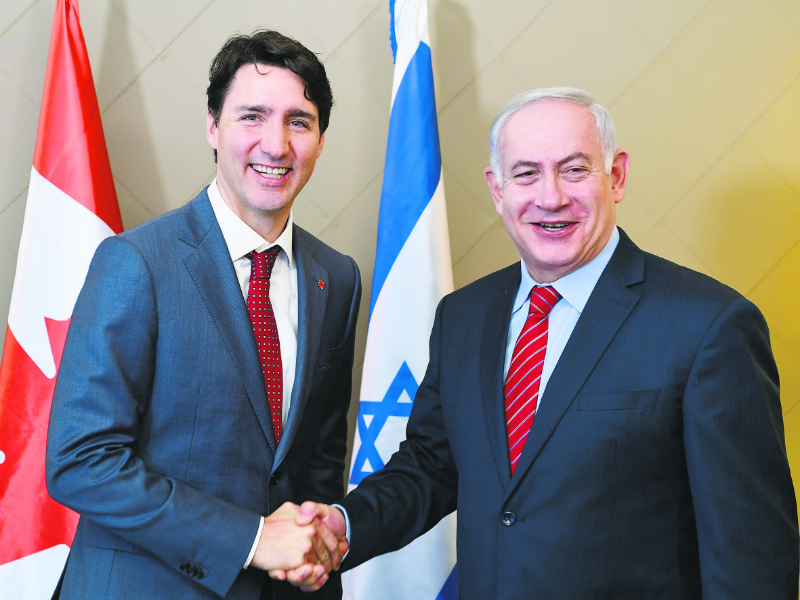In the community of Turtle Bay, in the leafy suburb of midtown Manhattan, the UN town council has reprised its annual show of farce, once again labeling Israel the worst neighbour of the year.
For its part, Israel has been a good citizen in this neighbourhood of nations. A democratic leader on its block, the country pitches in, embraces freedom, liberalism and the rule of law. Israel is a community leader in international disaster response, humanitarian assistance and green technology to boot. Despite these efforts, Israel’s immediate neighbours have recently been firing missiles into its backyard. Neighbourhood watch hasn’t said a word.
In the international scope, Canada has long been a friend of the Israel. Yet, in a stunning departure of its long-held bipartisan position on Israel at the United Nations, the first foreign affairs act of the new government of Prime Minister Justin Trudeau has been to endorse a United Nations resolution isolating the region’s only liberal democracy for critique and scorn.
The resolution affirms the “right of the Palestinian people to self-determination” and calls for the formation of a Palestinian state. Canada has traditionally voted against the resolution year-after-year. Of course, any productive path toward peace will involve the direct negotiation between Israelis and the representatives of any future Palestinian state. But this is not to be done among the nosy neighbours and disreputable mob at the UN General Assembly.
Of the 26 resolutions it tabled this fall, 20 condemn Israel. Iran, North Korea and a handful of others face one condemning resolution each. The disproportionate focus on Israel is evident to anyone. When Israel is labelled a rogue by rogues, abusing a body that is supposed to carry international legitimacy, the only purpose is to defame it. This provides talking points to Israel’s critics, and fodder for those wishing to see the end of its existence.
Canada should know better than to support resolutions presented in bad faith and with ill intent. This particular resolution was sponsored by North Korea and Zimbabwe, two historically iniquitous nations that Canadian diplomats should treat with skepticism rather than handing brickbats to bruise a friend. Yet, the Trudeau government instructed its UN mission to vote yes on the resolution.
READ: LIBERALS SPARK OUTRAGE WITH ANTI-ISRAEL UN VOTE
Some observers will remember Trudeau’s stated goal of claiming a seat on the UN Security Council in 2021. Cynics may claim that the prime minister is currying favour with despots and dictators in order to lobby for the coveted spot. But thus far, Trudeau’s efforts in the realm of international relations have been ill-defined at best.
On Israel, he has promised a more “balanced” approach than former Conservative prime minister Stephen Harper. This so-called “balance” has manifested itself at the United Nations with the re-establishment of funding for UNWRA, the UN refugee agency in Gaza, which has been credibly accused by watchdogs of funnelling money to Hamas and deploying anti-Semitism as an educational tool.
Back at home, the last election reduced Trudeau to a minority government. He will now be facing pressure from opposition MPs in Parliament on every policy matter. Each subject put before the new House of Commons will be transactional, either in the immediate term, or in the future.
While Trudeau can depend on the Conservative party to continue its principled stance defending Israel, the left-leaning parties will demand more “nuance” on Canada’s position. The NDP, Bloc Québécois and Green party will be looking to align Canada’s foreign policy with countries that are not led by U.S. President Donald Trump.
Of course, until now, Canada and the United States were the only major countries to reject all efforts to single out Israel for condemnation at the United Nations.
Trudeau’s most recent pivot on Israel suggests a short-sighted effort to gain status and credibility with the Israel critics among its UN neighbours, and legislative comfort among Israel’s detractors at home. If so, that trend should concern those of us who support our stalwart ally and friend.
